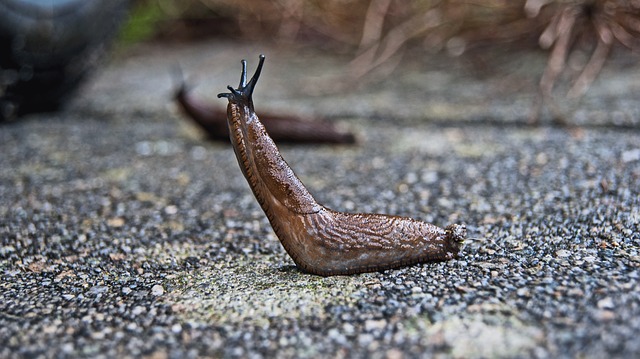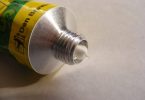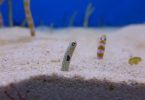Table of Contents
Do Slugs Live in Pond?
No, they don’t. Slugs cannot survive under water.
Slug can easily crawl into your pond or somehow wash into it, once they are inside, they can get drowned because they can’t really swim or do anything, and may not even be able to crawl out in time even if the sides are slick.
If you have a pond in your backyard, you might have come across slugs and wondering to keep them or not.
Before we go into them, let’s get introduced to their origin, slugs on ponds belong to the family of gastropod, the same family of the snails, the mollusks, and a whole lot of other species like about six thousand different species.
They inadvertently enter ponds riding through the plants that live on water, as they move through systems if water like the wetlands or the rivers by themselves.
They also hike behind turtles that have not been in motion for a long time or they can even hit a cat or a dog when the dash against plants that have eggs or snails, and put it on your pond.
What do pond slugs eat?
Slugs consume algae, leafy vegetation, dead fish and snails.
If you have a heavy pond, there shouldn’t be a serious damage to those plants because little number of slugs have little or no effect. And also slugs eating algae is also a way to keep algae in check, they will also eat plants if there is nothing else to eat.
Benefits of keeping slug in the pond:
Pond slugs also play vital roles in the ecosystem of the pond by feeding on dead plants, fish material and algae, thus keeping the tank clean. More so, the pond slugs equally help in the cycling of nutrients as they feed on the releasing and detritus sedimental nitrogen.
Conversely, should you get any species that tolerates pollutions like the pond slug that wanders, know that it is sign that the pond could be polluted and will have to be monitored while being tested.
Why you should not have snails in the pond:
Slugs will contribute greatly to the ruin as soon as the organisms start dying. The spikes can result in harmful wastes like the ammonia and the nitrites which are poisonous to fishes. Again, a lot of slugs host too many parasites that are often contracted by mammals and fishes because of their ability to host pathogen, parasites and bacteria.
How to get rid of slugs
If you encounter slugs around the area of your pond, or in your pond, and you are not willing to keep these slugs, here is a list of what you can do to do away with these slugs for good. Well, for starters you could do that using your hand, before adding slug predators like some species of fishes and frogs.
- Drown them: Slugs like beer, milk and most sugary liquids, they are attracted to the smell. Just pour some beer in the ground which will attract and drown them – then, dispose afterwards.
- Birds and frogs: Birds can be a problem when it comes to ripe fruit and may scratch young seedlings when searching for insects but they are great at spotting slugs and snails.
If the pond is given a good environment to live in, frogs can also roam the garden and reduce the number of slugs. Problems are areas they can’t reach easily: a closed greenhouse, or brick and rocky areas where slugs can hide. Should these methods generate a reverse of the methods that you desire, you could introduce chemicals to save the day. Remember that these kinds of chemicals can have adverse effects on the ponds when they are not well used, like the sulfate, and copper.
Conclusion
Clean your filter regularly and always change the cartridge to eliminate little slugs and eggs as well. Endeavour to empty the pond once in a year and clean off the decorations, liners, and rocks. Also use a dual water flow vacuum. and mud cleaner, so you filter and clean the water at once.







